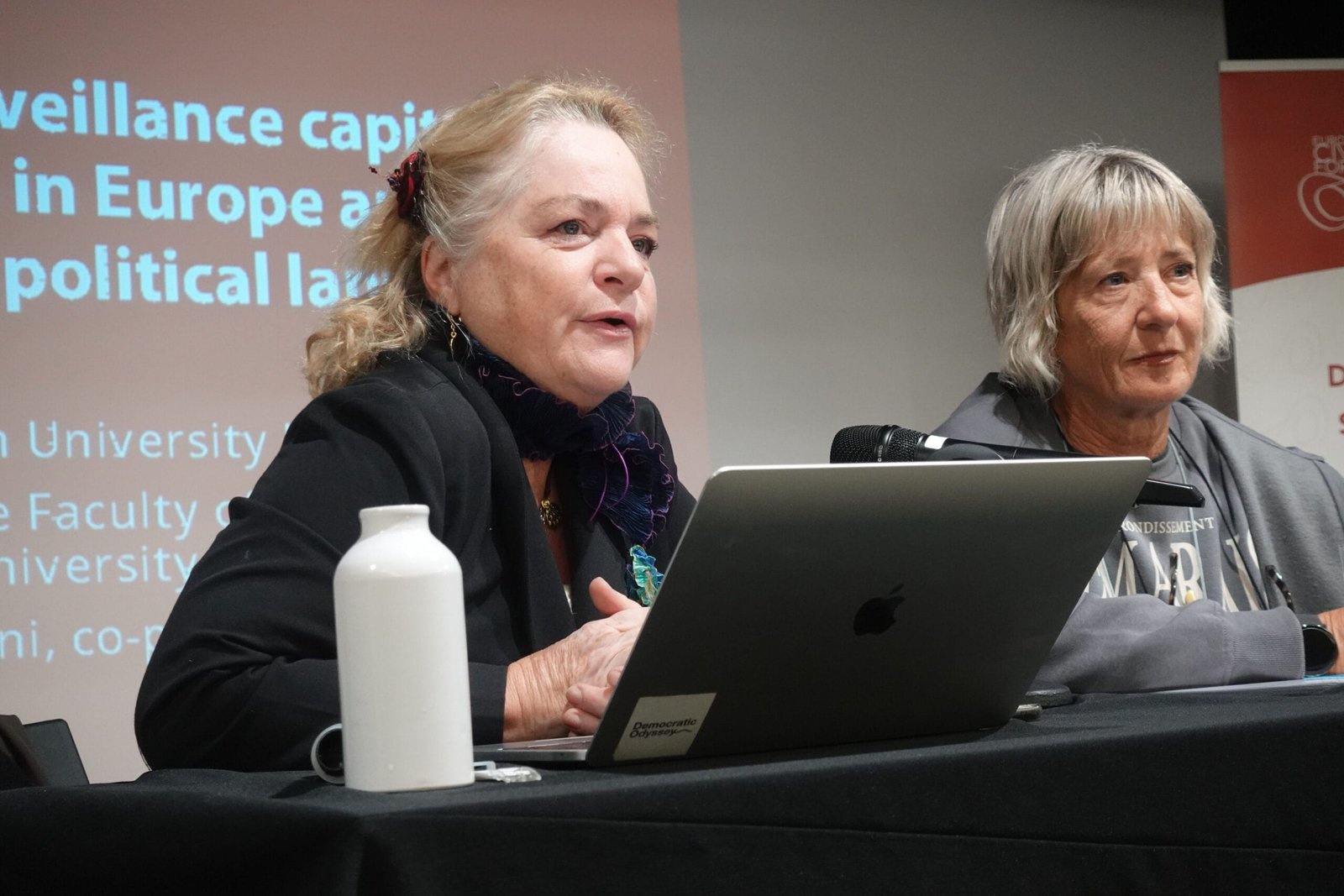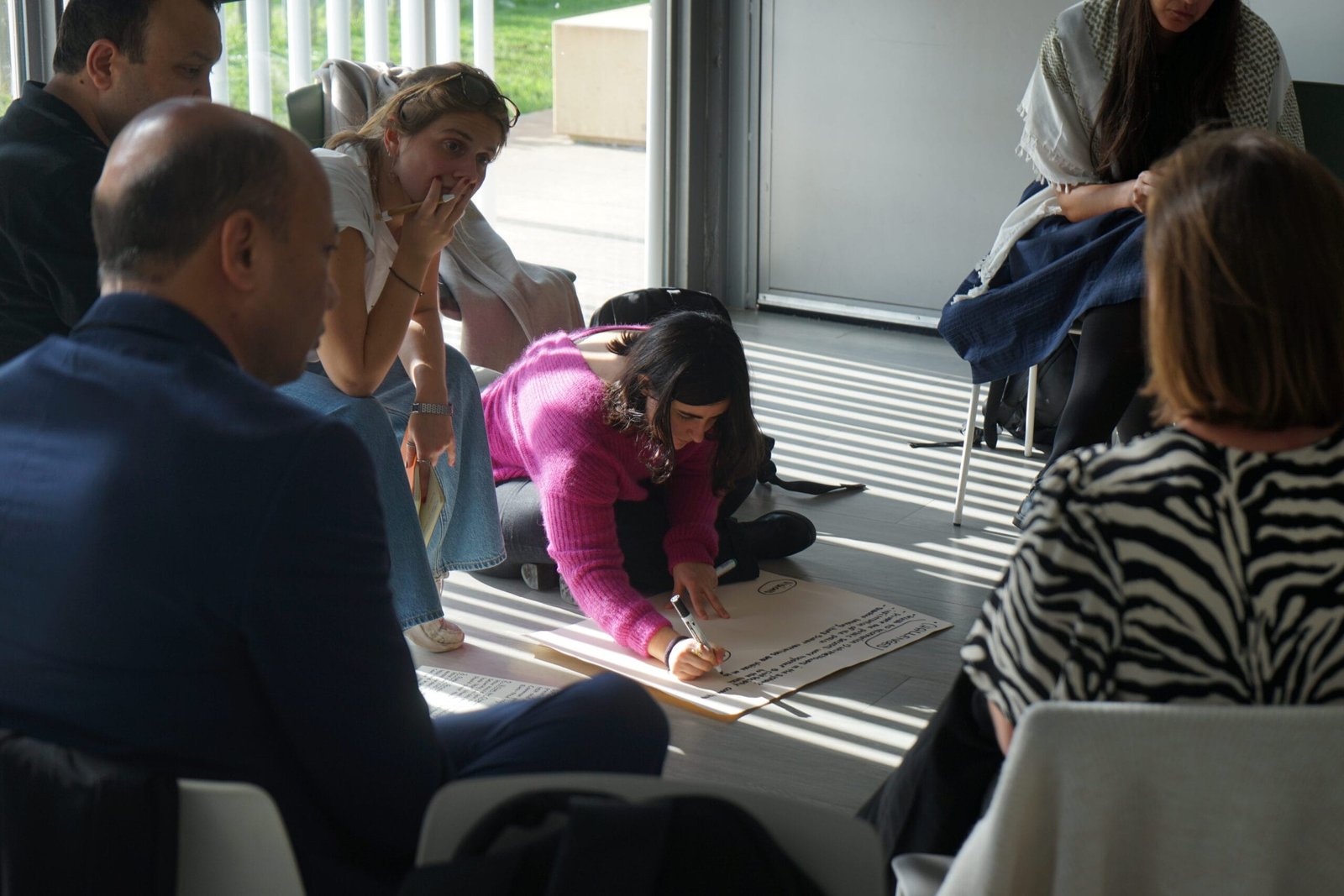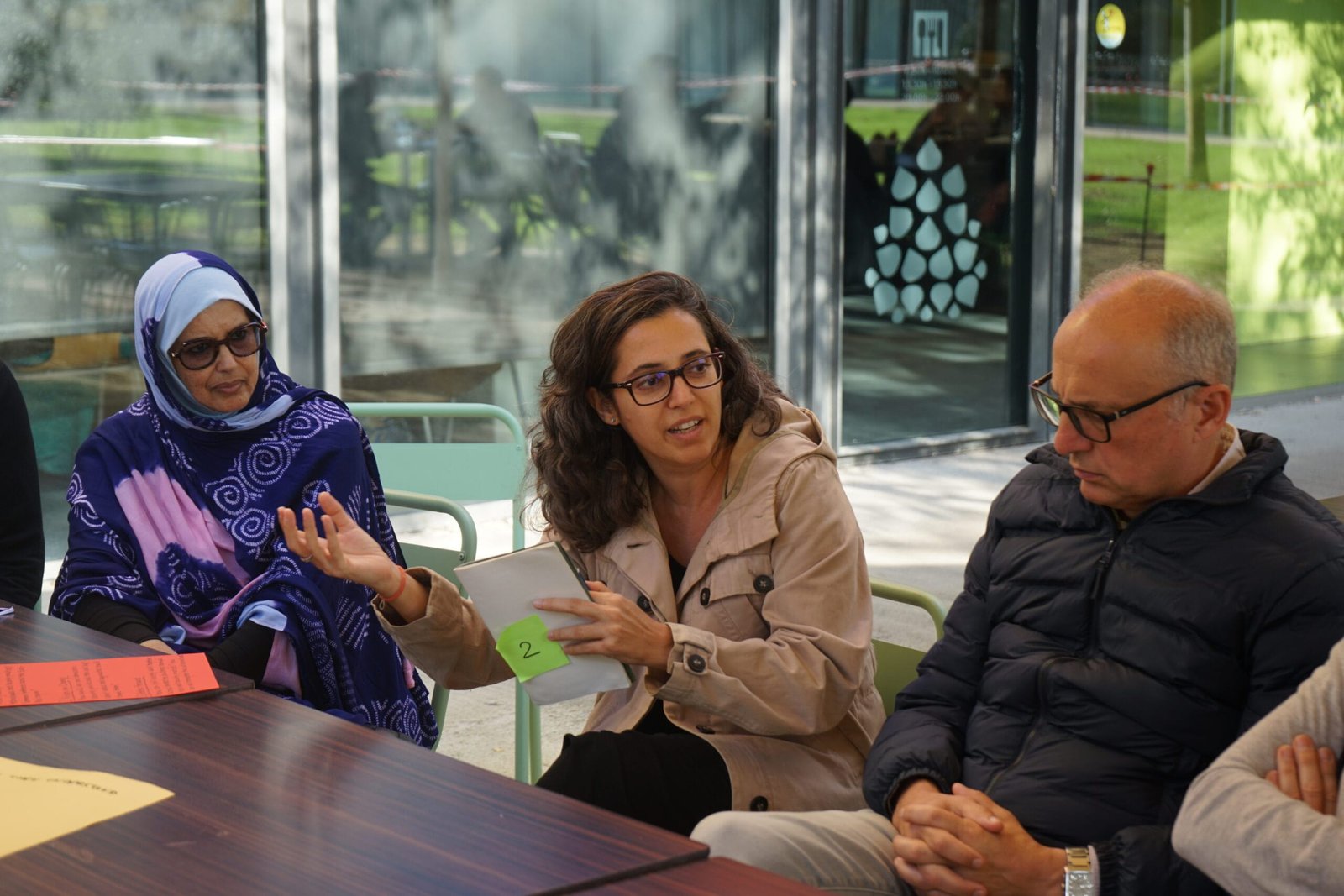This year’s European Civic Academy was hosted by The Nonviolence Factory, which brought together civil society from across the Euro-Mediterranean region to promote strategies to confront authoritarianism and defend human rights and democracy. This year’s Nonviolence Factory took place over four days from 11-14 November, tackled the challenges of mass surveillance and the use of new technologies to control civil society and shrink human rights defenders’ work.
The European Civic Academy took place on 14 November, focusing on security politics, (digital) authoritarianism and surveillance capitalism and brought together human rights defenders and civic actors from across the Euro-Mediterranean region. In the first session, Authoritarianism, Surveillance Capitalism, and Security Politics, Professor Kalypso Nicolaïdis (European University Institute) introduced the concept of the Democratic Panopticon, offering a framework to push back against the societal acceptance of repressive technologies and shed light on the link between the increasing securitisation and authoritarianism and the growing inequality, insecurity and longing for security of the recent decades in Europe. Professor Wahid Ferchichi (University of Cartago) provided an analysis of the authoritarian practices in Tunisia and the MENA region, while ECF’s co-president Raffaella Bolini moderated the discussion and presented some opening and closing remarks on civil society’s potential to resist these tendencies.


Building on these insights, the second session, Collective, liberated and democratic visions and strategies for security politics and technology, moderated by Kerttu Willamo, ECF Civic Space Project Officer, turned to experiences from civil society and solutions. Speakers emphasised the need to reimagine technology and security policies through a human rights lens. Mahjoub Maleha (The Collective of Sahrawi Human Rights Defenders – Codesa) shared personal experiences of the psychological and collective impacts of being targeted by spyware and the lack of digital protection that human rights defenders face, while Sarah Chander (Equinox Initiative for Racial Justice) highlighted the intersection of the use of technologies, Europe’s colonial security practices and other discriminatory policies and explored strategies to build stronger movements and collaboration to challenge the surveillance systems and policies. Caterina Rodelli (Access Now) presented a critical analysis of the EU’s digital and migration policies, envisioning a future centred on human rights. Finally, Marwa Hanna (7amleh – Arab Center for Social Media Advancement) analysed the violence against Palestinians from a digital rights lens and highlighted the intersection of Israeli surveillance technologies and the broader global impacts and linked it to the increased surveillance in Europe.

The sessions provided and encouraging space for different civil society actors from diverse backgrounds and countries to build collective resilience, share practices, build bridges and collaborate with digital rights organisations to stay ahead of emerging threats.

